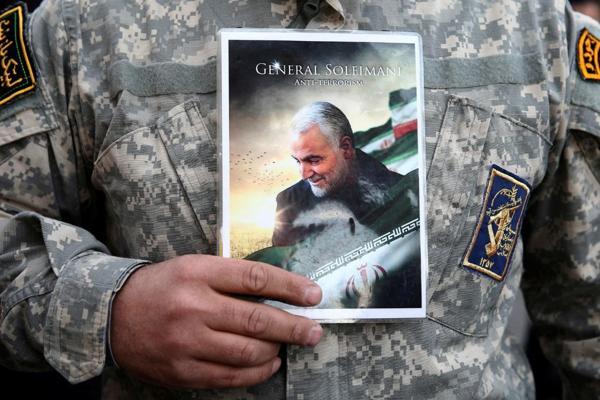Turkey in diplomatic efforts to defuse tension over US-Iran row
ANKARA


Turkey has joined an international diplomatic campaign to defuse tension between the United States and Iran after the assassination of the latter’s top military figure with calls on all related parties to act with restraint and common sense to avoid a larger conflict in an already unstable Middle East.
President Recep Tayyip Erdoğan held phone conversations with Iranian President Hasan Rouhani and Iraqi President Barham Salih over the weekend as Tehran vowed to retaliate against the U.S. for the killing of Iran’s military chief Qassem Soleimani and Iraqi militia leader Abu Mahdi al-Muhandis.
Erdoğan also had a phone conversation with French President Emmanuel Macron late on Jan. 3 in which recent regional developments in the Middle East and Libya came to the forefront.
In talks with Rouhani and Salih, the leaders discussed the latest developments in the region as well as bilateral relations, sources said on the condition of anonymity. Erdoğan and Salih emphasized that regional and international cooperation is needed to resolve crises in the region.
The two presidents also agreed that the fight against terrorism and radical ideology would help stabilize the region through cooperation between the countries.
According to the sources, Erdoğan told Salih that Turkey “did not allow Iraq to become a field of regional and international conflicts.”
With concerns that the killing of Soleimani would trigger new tensions and conflicts in the region, Turkey has urged all the related parties to avoid actions that could further destabilize the region through an armed conflict.
Need to de-escalate tension
“Turkey once again calls on all parties to act with common sense and avoid steps that will further escalate tension,” Erdoğan’s chief foreign policy advisor and the presidential spokesman, İbrahim Kalın, said in a televised interview late on Jan. 3.
He added that Turkey will continue to make full use of diplomacy to guarantee regional and global peace.
Apart from Erdoğan’s telephone diplomacy, Foreign Minister Mevlüt Çavuşoğlu also exchanged views with a number of his colleagues over the weekend. He spoke with U.S. Secretary of State Mike Pompeo, Russian Foreign Minister Sergei Lavrov as well as Iranian Foreign Minister Javeed Zarif. Çavuşoğlu held a phone conversation with his South African counterpart Naledi Pandor as well.
Talks with Pompeo and Lavrov
Spokesperson of the U.S. State Department Morgan Ortagus informed that Pompeo spoke to Çavuşoğlu “to discuss President (Donald) Trump’s recent decision to take defensive action in response to imminent threats to American lives”.
“Secretary Pompeo reiterated the importance of countering the Iranian regime’s destabilizing activities in the region and underscored the Trump administration’s resolve in protecting American interests, personnel, facilities and partners,” Ortagus said.
A statement issued by the Russian foreign ministry has revealed that Lavrov and Çavuşoğlu have discussed the situation in the region following the U.S. attack on senior Iranian military operatives.
“Sergey Lavrov stressed that this U.S. action was a grave violation of the fundamental standards of international law and does not contribute to achieving the counter-terrorist goals declared by Washington,” it said.
“The parties expressed concern over the potential serious consequences of the U.S. action for peace and stability in the Middle East. The ministers also covered the Syrian settlement and the state of affairs in Libya in the context of preparing for upcoming top-level contact,” read the Russia’s statement.
Turkey expresses concerns
Turkey has expressed its deep concerns about the escalating tension in the Middle East after the U.S. attack through a written statement by the Foreign Ministry on Jan. 3, after Erdoğan chaired a security summit in Istanbul.
“We strongly reiterate that turning Iraq into a conflict zone will harm peace and stability not only in Iraq but also the entire region,” read the statement, repeating that “Turkey has always been against foreign interventions, assassinations and sectarian conflicts in the region.”
“We invite all parties concerned to act with restraint and discretion, to avoid unilateral steps that can endanger peace and stability in our region, and prioritize diplomacy,” it added.
